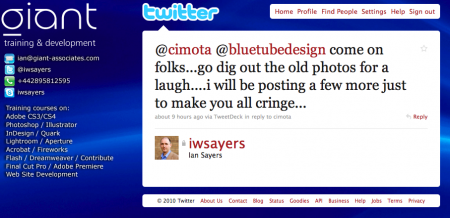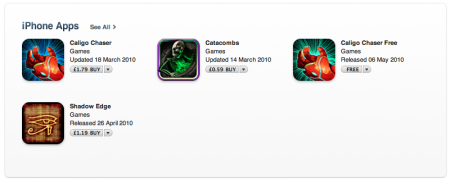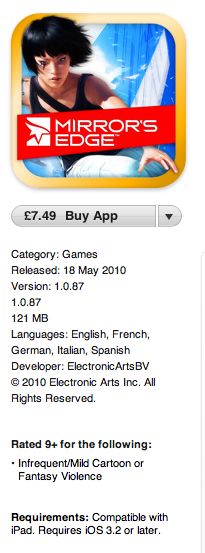Obviously you’re aware that we recently received a sterling example of ‘bad customer service’.
I’ve blogged about some of this before.
If you run a business, you provide some sort of service to someone. It would be great if every customer encounter was entirely positive but only a small fraction of people can lay claim to such a record. At some point you’re going to be part of a customer complaint and it seldom matters if it is your fault – what matters is how you deal with it.
e.g. During the reign of the iBook G3, there was a repeating issue with some iBook logic boards which caused some units to come in for multiple repairs. More than one customer complained that the issue must be due to our workmanship in providing the repair because it did not occur to them that they may be receiving faulty parts, parts which expire after a certain half-life much like the original board did. These issues were by and large the exception but it motivated one individual to go above and beyond in making sure everyone knew that we had failed to fix his iBook. This was patently untrue but how we dealt with it was in spending more time educating customers on the origin of parts and trying to be more aware when our name was used on the Internet in vain.
Now, the example above was not our fault – but we took as much responsibility as possible. Others out there will attest that my company spends a lot of time defending the rights of our customers when dealing with our favourite fruit company so that even when there have been supply issues (faulty parts, delayed parts), the customer is not the one who is most troubled by this. We do not get paid by anyone to spend any time defending the rights of customers to our suppliers because we do a lot of warranty work which is a set fee per repair. We do that stuff for free because it’s good customer service – we do it to benefit the customer and, yes, somehow get some repeat service (though we always say we aim never to see our customers again because it means their Mac has broken down again).
We aim to try and turn every bad experience into a good one – which is why I want to know when people have had bad experiences because unless I know about them – I can’t actually fix the problem! No-one wants to see someone unhappy surely – especially when they can fix it. And sometimes that may mean taking a hit – a hit you will survive, maybe even learn from, possibly even benefit from – rather than taking one later which knocks you out of the race. We may not have any decent competition in Northern Ireland but we have plenty across the UK (hundreds of AASPs) and we compete with them every single month.
This is why Mac-Sys is in the top 5 of Customer Service ratings of Apple Authorised Service Providers in the UK. Because we try hard.
The Real McCoy is a chip shop up in Four Winds. They have a sign saying “If you think we’re good, tell your friends. If you think we’re bad, tell us”. Similarly I worked contracts with a smart guy I really respect called Mark Case (he runs White Noise). He told my fledging company: “Treat us well and I’ll tell my friends. Treat us badly and I’ll tell everyone.”– and that’s the way it is in business. You have to look at the big picture and figure out what is best for the business in the long run.
One thing I’ve learned is that the weight of a single angry customer far exceeds the weight of ten happy customers or a thousand mildly pleasant but ultimately non-committal customers.
Choose your friends wisely, this ‘Shepherd’ certainly will.
POST EDITED DUE TO SETTLEMENT.








